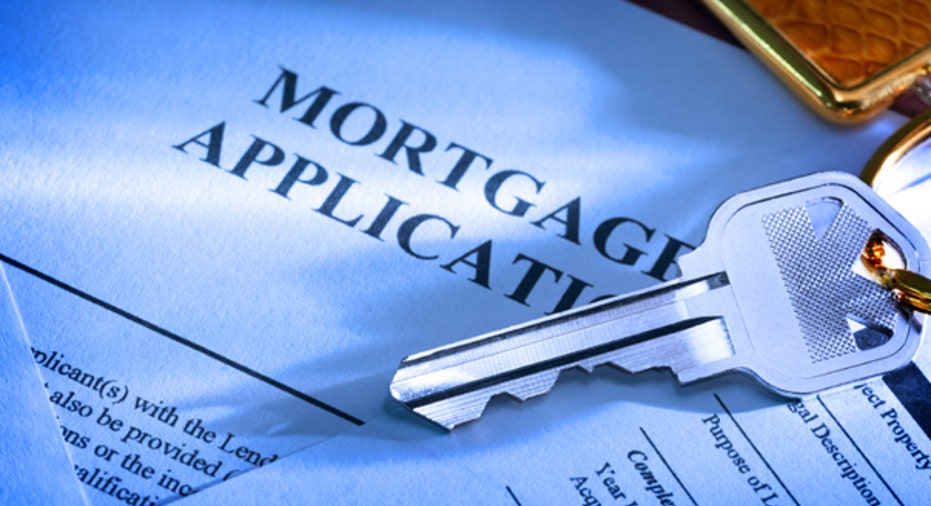Four Ways to Pay off Your Mortgage Earlier

Paying off the mortgage early is in. Refinancing to take money out of our homes is out. Living through the foreclosure crisis, more people want the security and the psychological benefit of owning their home free and clear.
If you want to pay off your mortgage early, you'll find plenty of experts recommending ways to do it. All strategies work, but you'll find some methods of paying off your mortgage are safer, faster, and more painless than others.
Compare these ways you can pay off your mortgage early, starting with the simplest and
Just Pay More
If you want to see magic, start playing with mortgage calculators and see how adding a little payment to your principal here and there can shorten the length of your loan. You can use Bankrate.com's mortgage loan payoff calculator to see how $100 or any other amount added to your payment reduces your interest and shortens the length of your loan.
If you pay a little more principal, you get a bonus. The lower your principal gets, the more every payment from then on is applied to principal, as less goes to cover interest expense.
If nothing else, round your payments up, recommends Tracy Piercy, CFP and CEO of MoneyMinding.com. She says that when people have a payment for $644, they think of it as $650. Why not just pay $650, then? An extra $6 a month on a $200,000, 30-year loan can save you four payments at the end of the mortgage loan.
When you pay extra, make sure the extra is applied to the principal balance, not just set aside for the next payment. And before you make extra payments, read your contract and make sure you won't have to pay prepayment penalties.
Refinance With a Shorter-Term Mortgage
You can refinance into a mortgage for 10, 15 or 20 years, but 15-year mortgages are the most common. Your payments will be higher on a 15-year loan, but perhaps not as high as you think.
One advantage of a 15-year loan is that you're committed to the higher payment. There's no dithering about whether you can afford to pay extra this month.
With a 30-year, $100,000 loan at 5%, your principal and interest payments are $537. At the same rate, but on a 15-year payoff schedule, your principal and interest payments are $791. That's $254 more a month.
To get the effect of a shorter-term mortgage without the risk, take out a 30-year loan, but make payments as if you had a 10- or 15-year loan. "You just make increased payments. You're in control, not the bank," Piercy says.
Bankrate.com's 15- or 30-year mortgage calculator recommends which type of loan to get.
Switch to Biweekly Payments
Biweekly payments take advantage of the fact that there are 52 weeks in the year and 12 months. If you pay half your regular mortgage payment every other week, you'll have made 26 half-payments, or the equivalent of 13 full monthly payments, at year's end.
See how it works with our biweekly mortgage calculator. The extra annual payment can chop about six years off a 30-year mortgage.
You shouldn't have to pay an outside company to set it up for you. "I hate the idea of having to pay a third party for something the consumer(s) can do on their own," says Cathy Pareto, MBA, a certified financial planner in Coral Gables, Fla. "Why pay the extra fees if you can avoid them and still accomplish the same goal?"
Check if your bank will set up a biweekly payment plan. Some banks do it free; others charge. Ask the bank to credit extra payments toward principal so you save more on interest expense. Some banks set aside extra payments until the end of the year.
Use Money Merge Accounts (The Australian Method)
In Australia, mortgages are generally set up like home equity lines of credit, or HELOCs. They double as checking accounts, thus the term "money merge." When you get paid, you deposit your check into the account, and as you spend money you take it back out again. You hope to put more money in every month than you take out.
With a mortgage using the Australian method, interest is calculated daily instead of monthly, and because the money spends as much time as possible in the account before you take it back out to pay bills, you save on interest expense.
But Dr. Don, a Bankrate.com columnist, writes: "I just don't think the typical homeowner benefits from this type of mortgage loan." Typical homeowners don't see enough reduction of their interest expense to make this method worth it for them, according to Dr. Don.
Some money merge programs require you to buy software for thousands of dollars. However, there's no magic formula for shifting your money around. "You don't need software to do that," Piercy says.
The biggest downside to the money merge plan is that it requires discipline. "You wouldn't do it unless you understood cash management," Piercy says.



















